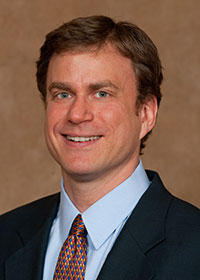
Faculty in 5: Dan Forbes
Monday, October 31, 2016
Q: What is/are your current area(s) of research? What business challenges are you helping to solve?
A: I study how people make decisions related to the creation and management of new ventures. I'm also interested in how new ventures attract critical resources, including money and people. In general, I'd like for my work to help improve the decisions people make about whether, when, and how to start a business.
Q: What current business issues or stories in the news are you following and why?
A: There is a lot of discussion lately about whether we have enough start-ups in Minnesota or the U.S. It's good that we support entrepreneurship, but I don't necessarily think we ought to "maximize" the number of startups we have. It's better to focus on connecting people with good information and guidance, even though that's a harder thing to count or measure. Sometimes the right decision is to not launch a venture.
Also, I try to monitor the directions in which people are trying to innovate. Right now, we have a lot of money and talent going towards the development of technologies that are fairly trivial relative to the challenges we face as a society. Consider, for example, those things the University and others have identified as "grand challenges", like ensuring clean water and advancing health. I try to understand the factors that enable and constrain innovation, and I try to encourage people to take on big problems and really improve people's lives—especially the lives of people who will otherwise get left behind in the world. Often people think they don't know enough to do something important. But sometimes the fresh perspective they bring is really valuable.
Q: What is your favorite class to teach?
A: New Product Design & Business Development (ENTR 6041 & 6042). In that class, MBA students team up with graduate students from the College of Science and Engineering to work on real projects that are sponsored by companies and entrepreneurs. All the projects involve developing a tangible new product, and they all require cross-functional collaboration. I love watching both sets of students learn from each other and develop a common passion for solving a customer's problem.
Q: If you weren’t a business school professor, what would you be doing?
A: I know nothing about it, but I think it would be fun to make films, especially documentaries. I'd also enjoy working in some other innovation-related role, like in product design or entrepreneurial finance.
Q: What is the best book you’ve read in the past year?
A: Once in a Great City by David Maraniss. It's a profile of Detroit in the 1960s—a time when the city was at its peak in some sense, although you could also see the beginnings of its decline. Detroit has a lot to teach us about how dramatically fortunes can change in an economy. The book also illustrates the interdependence that exists among the private, public and nonprofit sectors. I think we could all benefit from reflecting on that.
